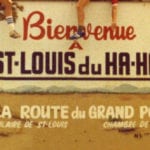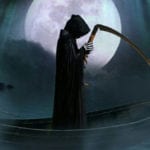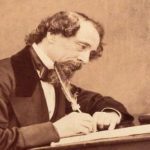 History
History  History
History  Weird Stuff
Weird Stuff 10 Wacky Conspiracy Theories You Will Need to Sit Down For
 Movies and TV
Movies and TV 10 Weird Ways That TV Shows Were Censored
 Our World
Our World 10 Places with Geological Features That Shouldn’t Exist
 Crime
Crime 10 Dark Details of the “Bodies in the Barrels” Murders
 Animals
Animals The Animal Kingdom’s 10 Greatest Dance Moves
 Movies and TV
Movies and TV 10 Box Office Bombs That We Should Have Predicted in 2025
 History
History 10 Extreme Laws That Tried to Engineer Society
 History
History 10 “Modern” Problems with Surprising Historical Analogs
 Health
Health 10 Everyday Activities That Secretly Alter Consciousness
 History
History 10 Dirty Government Secrets Revealed by Declassified Files
 Weird Stuff
Weird Stuff 10 Wacky Conspiracy Theories You Will Need to Sit Down For
 Movies and TV
Movies and TV 10 Weird Ways That TV Shows Were Censored
Who's Behind Listverse?

Jamie Frater
Head Editor
Jamie founded Listverse due to an insatiable desire to share fascinating, obscure, and bizarre facts. He has been a guest speaker on numerous national radio and television stations and is a five time published author.
More About Us Our World
Our World 10 Places with Geological Features That Shouldn’t Exist
 Crime
Crime 10 Dark Details of the “Bodies in the Barrels” Murders
 Animals
Animals The Animal Kingdom’s 10 Greatest Dance Moves
 Movies and TV
Movies and TV 10 Box Office Bombs That We Should Have Predicted in 2025
 History
History 10 Extreme Laws That Tried to Engineer Society
 History
History 10 “Modern” Problems with Surprising Historical Analogs
 Health
Health 10 Everyday Activities That Secretly Alter Consciousness
10 Wild Stories Behind Famous Songs
Although a lot of songs are nothing but mindless, generic beats meant to make you want to drop it like it’s hot, some of them do come with interesting backstories. And in this list, we are going to take a look at ten of them.
Related: Top 10 Backstories For Popular Idioms
10 “Ticket to Ride”
By the time “Ticket to Ride” was released in 1965, the Beatles were firmly established as one of the biggest acts in music history. But as to the meaning behind the song itself, it has either an innocent or a not-so-innocent explanation, depending on who you ask.
According to Paul McCartney, the title was quite literal and referred to traveling to a town called Ryde on the Isle of Wight. John Lennon, however, the man who primarily wrote the song, had a different interpretation. Lennon supposedly told journalist Don Short that the term came from their days playing in Hamburg, Germany, where prostitutes there were given cards from the medical authorities, which stated that they had a clean bill of health. Thus, those were the tickets to “ride.” Maybe it’s true, maybe Lennon was just messing with him, but the story has become part of rock ‘n roll lore.[1]
9 “Rumble”
The song “Rumble” by Link Wray was certainly innovative in its day. Released as a single in 1958, it used distortion and tremolo effects on the electric guitar, a sound that we are all familiar with nowadays but was still new, groundbreaking, and even shocking for its time. The track had no lyrics. It was an instrumental that relied mainly on its heavy guitar riff to catch the ear of the listener.
And it certainly did that, even though many people were unhappy with what they heard. Parents across America feared that the song was too angry and incited the country’s youth to violence and delinquency. Several major markets in America, including Boston and New York, decided to ban the tune from the airwaves, thus making it the only instrumental song to receive this treatment. And what’s more rock ‘n roll than that?[2]
8 “In-A-Gadda-Da-Vida”
When Iron Butterly released In-A-Gadda-Da-Vida in 1968, it became one of the best-selling albums in history, thanks mainly to its title track, a bizarre and eclectic 17-minute composition of the same name that took the music world by storm. For this, we have the band’s lead vocalist, Doug Ingle, and a gallon of Red Mountain wine to thank.
Before Iron Butterly struck it big, the group was in dire straits. Their first album, Heavy, didn’t exactly set the world on fire. Most of the members had left the band, leaving only Ingle and drummer Ron Bushy who worked as a pizza delivery boy on the side to pay the bills.
One night, Bushy came home from his job to find Ingle in a state nearing delirium. He had been up for two days straight and was drunk on a gallon of wine. And yet, when Bushy found him, Ingle was holding his Vox keyboard, trying to play this new tune he had in his head. The only problem was that he was so wasted that the drummer couldn’t understand a word he was saying. So Bushy phonetically wrote down on a napkin the ramblings coming out of his roommate’s mouth. In Ingle’s mind, he was singing “In the Garden of Eden,” but it came out as a slurred “in-a-gadda-da-vida.”[3]
7 “Louie, Louie”
Our next entry is a bit of a combination of the previous two. “Louie, Louie” by the Kingsmen was a big hit whose slurred, unintelligible lyrics stuck in the craw of the older generations. They became convinced that it was corrupting the youth of America and demanded an investigation from none other than the FBI.
Originally, the song was written and released by Richard Berry in 1957, and everyone was fine with it. But it was the 1963 version by the Kingsmen that attracted a lot of negative attention because lead vocalist Jack Ely sang the lyrics in an unclear way that made them incredibly hard to discern.
In reality, he did this because he had just performed a marathon gig the night before. His voice was a little hoarse, and he thought it was only a rehearsal, even though the studio ended up using that take. But people became convinced that the Kingsmen recorded the song in that unusual fashion in order to hide obscene lyrics in it.
The FBI got involved because, if the rumor was true, the band would have been guilty of interstate transportation of obscene material. So they actually ran an investigation between February and May 1964 and concluded that there was no evidence of obscenity.[4]
6 “Never Learn Not to Love”
Originally a B-side to the Beach Boys’ 1968 single “Bluebirds over the Mountain,” “Never Learn Not to Love” is unlikely to ever feature on one of the band’s Greatest Hits compilations. However, it does have one unique claim to fame. It was originally written by a struggling artist by the name of Charles Manson.
It all started when Dennis Wilson, the drummer of the Beach Boys, had a one-night stand with two women he met hitchhiking. As it happened, they were both part of Charles Manson’s cult, so when word got back to Manson, he saw it as his opportunity to hit the big time. Manson and Wilson got pretty close over the following months, to the point where the former worked up the courage to show the latter a song he wrote titled “Cease to Exist.”
Wilson thought it was pretty good, so he offered to buy it. Manson agreed, as long as the Beach Boys didn’t make any changes to it, something that the band immediately ignored. As you might expect, the cult leader did not respond well to this betrayal. He walked up to Dennis Wilson, gave him a bullet, and told him to think how nice it was that his kids were still safe. At that point, Wilson threw Manson to the ground and started thrashing him, thus bringing an end to the Beach Boys-Charles Manson collaboration.[5]
5 “Smoke on the Water”
“Smoke on the Water” is the kind of song that doesn’t really need an introduction. Not only is it one of the most famous rock songs of all time, but it also has the riff that every teenager picking up a guitar for the first time learns in their first week of playing. And it also has a crazy story behind it, which, to be fair, you would know if you listened to the lyrics.
On December 4, 1971, Deep Purple was in Montreux, Switzerland, with a sound truck rented from the Rolling Stones to record some new songs. That night, Frank Zappa and the Mothers of Inventions were playing at the Montreux Casino. Toward the end of the gig, “some stupid with a flare gun” thought it would be a good idea to fire off a shot, but the flare hit the wooden roof of the casino and set the building on fire.
Everyone was evacuated, including the members of Deep Purple, who retreated to a nearby restaurant and watched as a layer of smoke covered Lake Geneva, hence the “smoke on the water.”[6]
4 “Puff, the Magic Dragon”
Here we have something a little different—a rare example where the true story behind the song is actually a lot sweeter and more innocent than people would expect.
Everybody seems to think that the 1963 hit “Puff, the Magic Dragon” from folk trio Peter, Paul, and Mary is about drugs. It was even banned in a few countries because of this, and U.S. Vice-President Spiro Agnew tried to get it off the airwaves in America in 1970, decrying it as nothing but “blatant drug culture propaganda.” But the man who wrote the track, Peter Yarrow, insists that there is no hidden meaning behind it and that it is simply a kid’s song about the fantastical adventures of a dragon.
Yarrow based the lyrics to the tune on a 1959 poem by Leonard Lipton, who also swore that his fanciful dragon tale was not some kind of sinister plot to get kids into drugs. But even now, decades later, some people remain unconvinced.[7]
3 “You’re So Vain”
When Carly Simon released “You’re So Vain” in 1972, it quickly became her biggest hit, and even today, everyone remembers that famous line: “You’re so vain, you probably think this song is about you.” But the question soon arose—who was she talking about?
For decades, Simon played her cards close to her chest. At first, she insisted that her song about an egomaniacal, self-absorbed former lover referred to men in general. Then she alluded that certain parts might be about specific men in her life and, finally, even hinted at the idea that she was talking about just one man.
People speculated on his identity. Could it be Simon’s ex-husband, James Taylor? Or maybe Mick Jagger or Cat Stevens? The musician dismissed these ideas decades ago but did not offer up the true identity of the man in the song until 2015 when she revealed that it was Warren Beatty. But just when we thought that the mystery was over, Simon specified that only the second verse is about Beatty, and the rest of the song talks about two other men who still remain unnamed.[8]
2 “Chelsea Hotel No. 2”
The Chelsea Hotel in Manhattan has been a favorite hangout of artists for decades, many of whom used the hotel as their long-term living quarters in New York City. With that kind of clientele, the building has more than its fair share of notable moments, both famous and infamous. It’s where Arthur C. Clarke and Stanley Kubrick co-wrote the screenplay for 2001: A Space Odyssey. It’s where Sid Vicious probably killed his girlfriend, Nancy Spungen. And it’s also where a chance encounter led to a quick fling which was later immortalized in Leonard Cohen’s song “Chelsea Hotel No. 2.”
According to music lore, the meeting happened in the hotel elevator. Cohen got inside and noticed that the young woman standing next to him was none other than Janis Joplin. They struck up a conversation, and even though Janis was a little disappointed that he wasn’t Kris Kristofferson, she decided that Leonard Cohen was good enough.
The song, which came out after Joplin had died, describes their liaison in intimate detail. This is something that Cohen came to regret, referring to the song as “the sole indiscretion in [his] professional life.”[9]
1 “Barracuda”
With its instantly recognizable guitar riff, the 1977 single “Barracuda” is arguably Heart’s greatest song. But it was created from a place of anger, acting as a warning for all new artists against all the sharks, leeches, and… well, barracudas that they would have to face in the music business.
By 1977, the band was on the outs with its record label, Mushroom Records. Things went from bad to worse when the company decided it would make for a good publicity stunt if they implied an incestuous love affair between Ann and Nancy Wilson, the two sisters who fronted Heart. They took out a full-page advertisement showing the Wilson sisters standing next to each other bare-shouldered, with the caption, “It was only our first time!”
Although Heart switched labels that same year, the rumors about the sisters being lovers kept following them. It was an off-comment made by a journalist that angered Ann Wilson and prompted her to retreat to her hotel room, sit down, and pen the song that would become one of their trademarks.[10]








